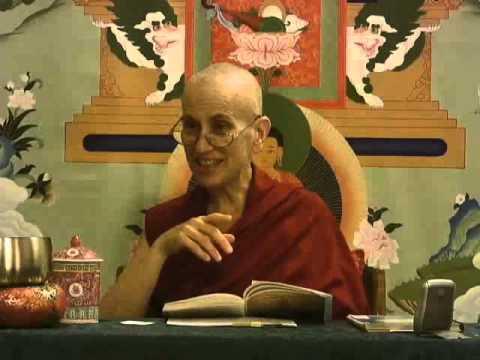Why talk about fear?
A series of talks on the many aspects of of our lives that we may have fear towards—death, identity, the future, health, the economy, loss, separation, and more; touching also on the wisdom of fear and the different antidotes to ease our fears.
- Reasons for continuing to do BBCorner talks during retreat
- Different kinds of fear
- Reasons for feeling fear
Fear 01: Introduction (download)
I just wanted to check in with everybody, now that I’ve come back from Mexico and say hello and welcome the new people to the abbey and to the retreat. And the teachings in Mexico went very well; people were really enthusiastic and very kind. And the weather was totally different from here, so everything changes, all over the planet.
Why continue BBC during retreat?
And one of the reasons I thought to continue the Bodhisattva Breakfast Corners during the retreat, I’m not sure if I will do it every day or not, was because I received many comments on it when I was in Mexico and one person said, you know, “I was so depressed the other day and I just went to Bodhisattva Breakfast Corner and listened to one after the other and it really helped me”. And then people saying how much these little vignettes of teachings help them, so that gave me some inspiration to feel that, you know, it’s good to continue them during the time of retreat.
Why talk about fear?
And I had an idea, I won’t talk about it much today, but when I was in Mexico many people brought up questions of fear. Because they are struggling with a lot of fear between the kidnappings in places like Mexico City and the wars with the drug cartels in some of the cities in the north. And so they were asking me about fear. And of course, before I left the US people were asking me about fear, but here our fears are of terrorist strikes and of the economy, especially the economy. So it seems like people are struggling with different kinds of fears as on national levels. And then, of course, people always ask me about fear on personal levels, you know. And some of you might even be afraid of doing the retreat. You know, our mind will think of anything and everything to be afraid of. You name it and we’ll make our mind afraid of it. So, I thought in the next few days I would just talk a little bit about different kinds of fear and how to work with them.
Fear as a mental Factor
And what’s interesting is the word fear, jigpa in Tibetan. So we have the jigme, meaning fearless. What’s interesting is that jigpa, or fear, isn’t listed as a separate mental factor when they list the 51 mental factors. Of course that list is made in terms of what’s advantageous to attain liberation and what is counter-indicative for attaining liberation. But you might say “Well I think fear is really a big interference for attaining liberation”. And I don’t know, maybe people nowadays are more fearful than they were in the past, even though all the afflictions everybody has always had throughout time. It’s not that we have more or less than people in the past, but maybe they manifest in different ways. But I think fear is very much related to attachment, to anger, to lack of self confidence, to all sorts of other mental factors. So we may consider it a mental factor, and we relate it to other mental factors, it’s not in the list, but that doesn’t mean that we shouldn’t pay attention to it, yes we should. So, I’ll talk a little bit about that and about overcoming fear and stopping inventing fears that aren’t there. Do you think you ever do that? No, I don’t think so! I’m afraid you’re hiding your face. Okay, We’ll continue this in future days.
Venerable Thubten Chodron
Venerable Chodron emphasizes the practical application of Buddha’s teachings in our daily lives and is especially skilled at explaining them in ways easily understood and practiced by Westerners. She is well known for her warm, humorous, and lucid teachings. She was ordained as a Buddhist nun in 1977 by Kyabje Ling Rinpoche in Dharamsala, India, and in 1986 she received bhikshuni (full) ordination in Taiwan. Read her full bio.


